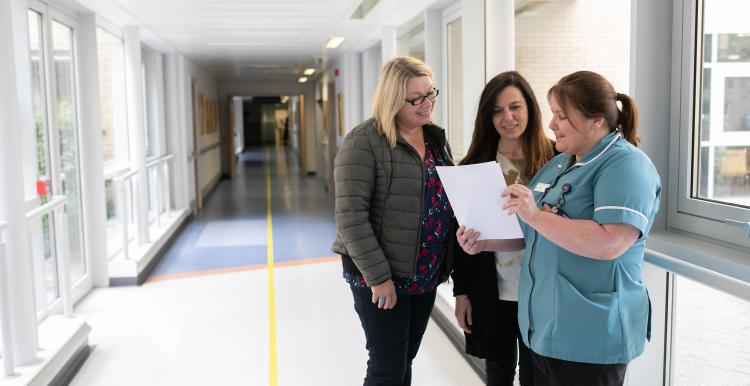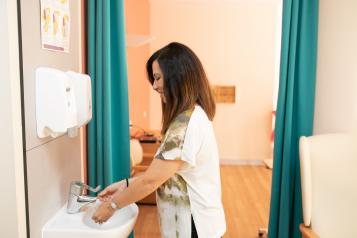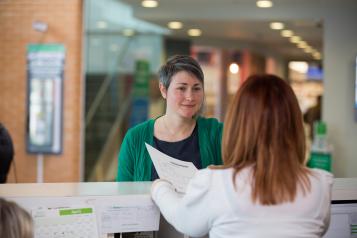Recently had vomiting and or diarrhoea? Please do not go into A&E or hospitals

In most cases people with these symptoms should treat themselves at home – and not visit GPs, Corby Urgent Care Centre, or hospitals – unless it is affecting other medical conditions they have.
Kettering General Hospital and Nene Clinical Commissioning Group are urging local people not to attend A&E – or visit relatives in hospitals – if they have, or have recently had, vomiting and/or diarrhoea.
The common stomach bug norovirus is currently prevalent in the county and will be affecting individuals in workplaces, care homes and schools and nurseries.
There is no specific cure for bugs like norovirus and – except in extreme cases – they are best treated at home.
You're likely to have norovirus if you experience:
- suddenly feeling sick
- projectile vomiting
- watery diarrhoea
- Some people also have a slight fever, headaches, painful stomach cramps and aching limbs.
The symptoms appear one to two days after you become infected and typically last for up to 2 or 3 days.
Kettering General Hospital’s Lead Nurse for Infection Prevention and Control, Dawn Westmoreland, said:
“We are aware of a number of cases of Norovirus in the local community and we have had 11 confirmed cases in hospital since the beginning of the month. Often these bugs are brought into hospital by people visiting or working in the hospital. It is important we do everything we can to prevent cases in hospital because many of our patients are already unwell through other medical conditions. Also the virus is very infectious which means we need to take additional precautions such as enhanced cleaning and reduced movement on affected wards which can lead to restrictions in visiting. Generally people should not attend A&E, the Corby Urgent Care Centre, or their GP surgeries with this illness because of the risk of spreading it more widely. Only in extreme cases – for example where symptoms are adversely affecting other medical conditions a person has – should they seek medical attention, and people should consider calling NHS 111 first for advice. Instead people can take simple measures at home which include drinking lots of fluids, taking paracetamol, resting, and not going to work or socialising until 48 hours after your symptoms have stopped.”
It’s also important to maintain good hygiene including hand washing with soap and water and cleaning bathrooms with bleach products.
Local GP and Chair of Nene Clinical Commissioning Group, Dr Darin Seiger, said the bug was very easily spread because it could survive on hard surfaces for several days:
“If you contract norovirus, please stay at home while symptoms persist, and for at least 48 hours after they have subsided. It's really important that you keep away from hospital and other healthcare settings as most people can manage their symptoms at home without any medical intervention. If you have concerns about a vulnerable person, or symptoms persist for more than two or three days, you can phone your GP practice for advice or call NHS 111.”


